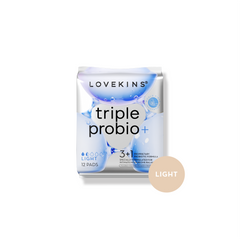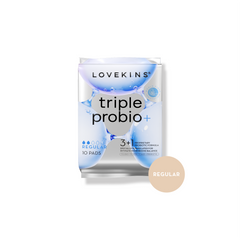Dr Joseph Sgroi is a qualified private obstetrician, gynaecologist and IVF fertility specialist in East Melbourne. Dr Joseph and his team provide holistic medical care to support women’s health and wellbeing during pregnancy, childbirth, fertility and women’s health.
Many women who have undergone breast cancer treatment are now wanting to look to the future, including planning or growing their families. If you have experienced breast cancer or you’re about to undergo treatment, you may be wondering how your fertility will be impacted.
Keep reading to learn more about how breast cancer treatment could impact your fertility and some of the best options for fertility preservation.
Can breast cancer treatment affect fertility?
Depending on the type of breast cancer treatment received, there is the potential for infertility. However, there is no blanket rule that women who have undergone breast cancer treatment will become infertile.
Other factors to consider include age, if periods have stopped completely (which indicates menopause), or whether fertility preservation methods were opted for before or during treatment.1
Trying to conceive while undergoing treatment for cancer is strongly discouraged as it can lead to birth defects. And yes, it’s possible to still conceive even if treatments have caused your period to stop. Maintaining a contraceptive strategy during treatment is highly recommended.
Which breast cancer treatments are more likely to impact fertility?
The most common breast cancer treatments include chemotherapy, radiation therapy, hormone therapy, and surgery.
Surgery
If an oophorectomy (ovary removal surgery) or hysterectomy (uterus removal surgery) has been performed without prior fertility preservation then it will no longer be possible to conceive. These surgical treatment measures are generally only taken in hormone-dependent breast cancers.2
Chemotherapy
Chemo can cause something called primary ovarian insufficiency (POI). POI affects the functioning of the ovaries, causing them to stop releasing oestrogen and eggs. This is usually only temporary and will return to normal after treatment.
Egg quality and numbers may be lower following chemotherapy. Since egg numbers and egg quality naturally decline with age, the closer to menopausal age a woman is during treatment, the more likely it is that the quality of the eggs will decline. Some chemotherapy drugs can also likely reduce fertility.3
Hormone treatments
Hormone-blocking therapy can be used in oestrogen-receptor-positive breast cancers. Common hormone treatments such as the drug Tamoxifen or ovarian suppression injections reduce oestrogen production - this can temporarily reduce period frequency or lighten bleeding. It’s not recommended to fall pregnant while on hormone therapy as these treatments may harm the foetus.4
Radiation
The follicles on the ovaries are sensitive to radiation therapy and the ovaries themselves can also ‘atrophy’ or shrink due to this treatment. Radiation therapy is a common form of treatment in breast cancer, but the ovaries are generally not the target so they will often receive less toxicity and damage. Despite the generally small dose of radiation to the pelvic area, it’s vital to undergo fertility preservation prior to radiation therapy.5
How to reduce the impact of breast cancer treatment on fertility
Undertaking fertility treatment is a big decision regardless of your state of health. Talking with your oncologist, gynaecologist and/or fertility specialist about your desire to have children after cancer treatment can help to clarify the best course of action and keep your options open.
Each fertility-preserving pathway has its own pros and cons. Your options will also depend on the method of cancer treatment. Future fertility is a major contributing factor for young women facing treatment for breast cancer. The type of treatment may end up depending largely on how it will affect fertility, which is why it’s so important to understand the options.
Egg and embryo freezing
Ovarian stimulation for oocyte and embryo freezing is a great option pre-treatment. With time as an important consideration, it’s worth noting that it only takes two weeks to complete. The procedure can also begin at any point in the menstrual cycle.6
You can learn more about this method, including the success rates, by clicking here.
Ovarian function suppression
Suppressing ovarian function, including the release of the hormones oestrogen and progesterone, during chemotherapy can help to protect the ovaries and increases the chances of conceiving naturally post-therapy. Suppression is achieved through the use of a type of medication called a ‘gonadotropin-releasing hormone agonist’.6 It’s important to note that the research into the effectiveness of this method is still ongoing.
Ovarian shielding
This procedure is done during radiation therapy. A physical shield is placed on the outside of the body over the reproductive organs, including the ovaries. However, with the development in treatment, along with reduced radiation dosages, there is currently a lot of debate about whether or not ovarian shielding is necessary or effective anymore.7
Donor eggs and embryos
If you weren’t unable to opt for other fertility preservation methods prior to your treatment but your uterus is still healthy, it’s possible to explore the option of donor eggs or embryos. It’s possible to go onto a waiting list or alternatively ask friends or family who may be willing to donate.
There are a number of restrictions with this option, so talk to your fertility specialist as they will understand the process and can guide you through it.
Nutrition
Regardless of your current state of health, if you’re planning on conceiving in the future, preconception care will go a long way in supporting a healthy reproductive system, including egg quality. Oxidative stress from poor diet, stress and lifestyle factors is a major cause of subfertility in both men and women. Antioxidants are quite literally the antidote to oxidative stress, preventing oxidation from occurring in large and damaging amounts.8
Antioxidants are widely available through foods and supplements. To get plenty of protective antioxidants, consume a diet high in beta-carotene and polyphenols from colourful fruit and vegetables, as well as vitamins A, C, E, and selenium from foods like berries, citrus, leafy green vegetables, green tea, wild rice, red grapes, nuts, beans and dark chocolate.
Does pregnancy increase the risk of breast cancer recurring?
With all of the changes that happen to the body during pregnancy, it was once thought that things like an increase in oestrogen might cause a recurrence of oestrogen-sensitive cancer types. Thankfully, research over the years has shown that pregnancy does not increase the risk of hormone-sensitive cancers returning.
How long should you wait before trying to conceive?
The recommendation for falling pregnant after cancer treatment is to wait 1-2 years into remission. This is not an exact science, but rather it’s thought to be enough time to find any cancerous tissue that may have returned.
If you’d like to learn more about fertility and preconception care, head over to my website - https://www.drjoseph.com.au
References:
- Cancer Australia. Effects of breast cancer treatments on fertility. Updated October 2021, accessed October 2022 from https://www.canceraustralia.gov.au/cancer-types/breast-cancer/impacted-by-breast-cancer/physical-changes/fertility
- Press, D.J., Sullivan-Halley, J., Ursin, G., Deapen, D., McDonald, J.A., et al. (2011). Breast cancer risk and ovariectomy, hysterectomy, and tubal sterilization in the women’s contraceptive and reproductive experiences study. Am J Epidemiol, 173(1):38-47.
- National Cancer Institute. Female Fertility Issues in Girls and Women with Cancer. Reviewed February 2020, accessed October 2022 from https://www.cancer.gov/about-cancer/treatment/side-effects/fertility-women#:~:text=Cancer%20treatments%20may%20affect%20your%20fertility&text=Chemotherapy%20(especially%20alkylating%20agents)%20can,and%20fertility%20return%20after%20treatment.
- Breast Cancer Network Australia. Hormone-blocking therapy. Accessed October 2022 from https://www.bcna.org.au/understanding-breast-cancer/treatment/hormone-blocking-therapy/
- Hulvat, M.C. & Jeruss, J.S. (2010). Maintaining fertility in young women with breast cancer. Curr Treat Options Oncol, 10(5-6):308-317.
- Warner, E., Glass, K., Foong, S. & Sandwith, E. (2020). Update on fertility preservation for younger women with breast cancer. CMAJ, 192(35):E1003-E1009.
- Jeukens,C.R.L.P.N., Kutterer, G., Kicken, P.J., Frantzen, M.J., van Engelshoven, J.M.A., et al. (2020). Gonad shielding in pelvic radiography: modern optimised X-ray systems might allow its discontinuation. Insights into Imaging, 11(15).
- Smits, R.M., Mackenzie-Proctor, R., Fleischer, K. & Showell, M.G. (2018). Antioxidants in fertility: impact on male and female reproductive outcomes. Fertil Steril, 110(4):578-580.













